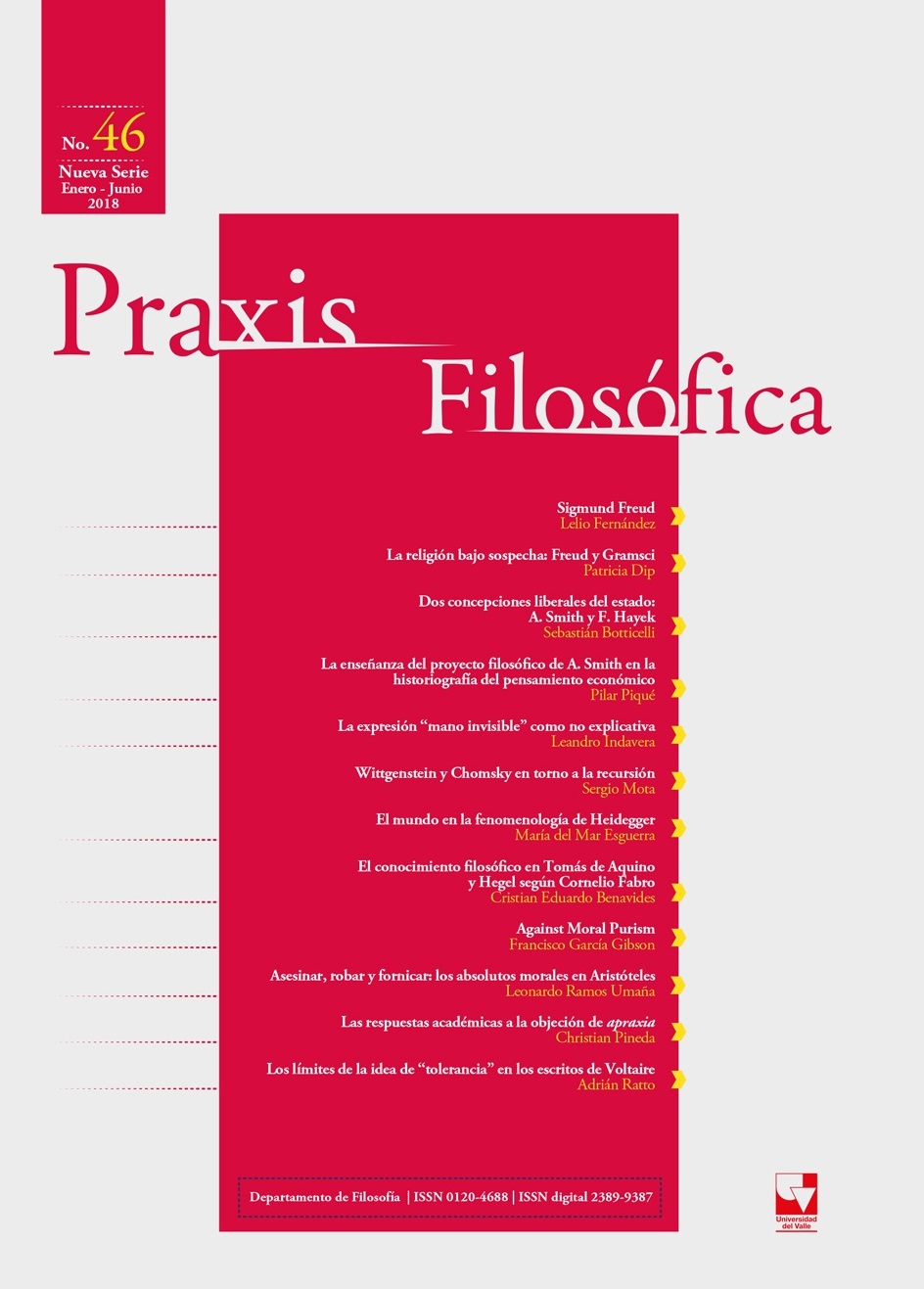Against Moral Purism
Contenido principal del artículo
Moral purism is the view that doing evil is never allowed, even as a means to prevent a greater evil. This article assesses two main versions of moral purism and shows that they are implausible. The first version claims that it is always impermissible to choose an option that results in a bad states of affairs, while the second version claims that it is always impermissible to choose an option that is wrong, even if it is only prima facie wrong. I contend that both versions are incomplete, in the sense that they are unable to provide practical guidance for cases in which all available options result in bad states of affairs, or in which all available options are prima facie wrong.
- Purism
- Lesser evil
- Prima facie wrong
- Incompleteness
- Wrongness
Gewirth, A. (1981) Are There Any Absolute Rights? The Philosophical quarterly, 31(122), 1–16.
Hill, T. E. (1983). Moral Purity and the Lesser Evil. The Monist, 66(2), 213–232.
Korsgaard, C. M. (1986). The Right to Lie: Kant on Dealing with Evil. Philosophy & Public Affairs, 15(4), 325–349.
McConnell, T. C. (1981a). Moral Absolutism and the Problem of Hard Cases. The Journal of Religious Ethics, 9(2), 286–297.
McConnell, T. C. (1981b). Moral Blackmail. Ethics, 91(4), 544–567.
Nielsen, K. (2000). There is No Dilemma of Dirty Hands. En D. P. Shugarman & P. Rynard (Eds.), Cruelty and deception : the controversy over dirty hands in politics (pp. 139–155). Peterborough, Ont.; Australia: Broadview Press ; Pluto Press.
Oberdiek, J. (2008). Specifying Rights out of Necessity. Oxford Journal of Legal Studies, 28(1), 127–146.
Reisner, A. E. (2013). Prima Facie and Pro Tanto Oughts. In International Encyclopedia of Ethics. Blackwell Publishing.
Donagan, Alan. (1977). The Theory of Morality. Chicago: University of Chicago Press.
Finnis, John. 1983. Fundamentals of Ethics. Washington, D.C.: Georgetown University Press.
Descargas
Aceptado 2018-02-05
Publicado 2018-01-15
De acuerdo con nuestra política (Licencia Creative Commons CC BY-NC-SA 4.0) los artículos presentados y sometidos al proceso editorial en la revista Praxis Filosófica no tienen costo alguno para sus autores ni retribuciones económicas para la revista. El artículo de carácter inédito, producto de investigación o de algún proyecto que se presente a Praxis Filosófica, no podrá estar sometido a otro proceso de publicación durante el proceso que se lleve en nuestra revista.





